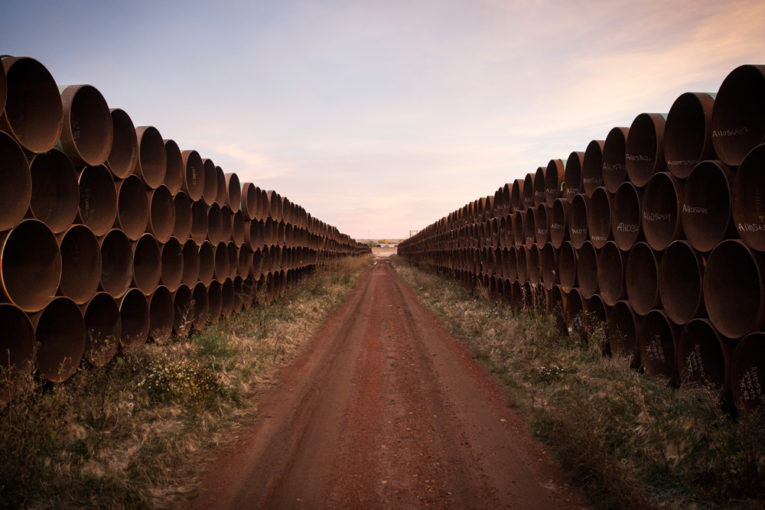
CALGARY – Work on the long-delayed, hotly debated Keystone XL project will re-start as early as next month, TC Energy Corp. said in a court filing Tuesday.
The Calgary-based pipeline giant filed a status report in the United States District Court of Montana on Tuesday that outlined “presently planned work for 2020 involving both pre-construction activities and construction of the pipeline.”
The company has been looking to build the 830,000-barrels-per-day pipeline – which was rejected by former U.S. president Barack Obama then approved by President Donald Trump – for more than 10 years. The company indicated in the court filing that it would build the 1.2-mile border crossing between Canada and the U.S. in April.
The filing outlines the company’s plans to mobilize heavy construction equipment to “worker camps and pipeline storage yards in Montana, South Dakota and Nebraska” in February, followed by mowing and other site clearing activities in March. By April, the company intends to move pipes by trains and trucks into storage yards.
Construction on pumping stations for the pipeline will begin in June, along with a portion of the pipeline through Nebraska. In Montana and South Dakota, the company expects to begin full construction work in April.
“Having successfully reached several key milestones on the project, today we filed a status report with Judge Morris in Montana outlining our plan to commence pre-construction activities and pipeline construction this spring in Canada and parts of the U.S. as we continue to advance this vital energy infrastructure project,” TC Energy spokesperson Terry Cunha said in an email.
The company had previously indicated that work on Keystone XL, which is expected to cost $8 billion, would begin in 2020 and carry on through 2021 but Tuesday’s court filing provides the first indication of when exactly work would begin.
The company was forced to stop work as a result of an unfavourable court decision in 2018 and work camps along the pipeline route in the U.S. emptied.
“Since the injunctions there hasn’t been much work at all,” said Michael Vetter, mayor of Philip, South Dakota, situated along the pipeline route.
Those injunctions were overturned last June but the company said at the time it had missed the 2019 construction season. It was also still waiting for a court decision from the Nebraska Supreme Court, which in August approved the pipeline’s alternative route through the state.
Vetter said he expects the construction work will provide “a nice little shot in the arm” to his town as labourers at a work camp 2 miles away come to shop or do their laundry.
This is very good news for Canada as a country.
Tristan Goodman, president, Explorers and Producers Association of Canada
Keystone XL has been locked in a years-long legal battle in the U.S. because it needs a Presidential permit to cross the U.S.-Canada border.
“That’s an incredibly encouraging sign,” said Eric Nuttall, a partner and senior portfolio manager with Ninepoint Partners in Toronto. “That’s a material, material positive for incremental egress.”
At this time last year, all three active pipeline proposals out of Canada – Keystone XL, the Trans Mountain Expansion project and Enbridge Inc.’s Line 3 replacement project – were in limbo after unfavourable court rulings delayed construction on each.
The situation led to massive discounts for Canadian oil and led to the Alberta government implementing production quotas for large oil producers in a bid to lift prices, prevent companies from failing and boost government resource royalty payments.
Now, all three are moving forward but Nuttall said Keystone XL, which is the largest of the three, might represent the largest positive.
“Keystone is the most surprising. Many had discounted the probability given the looming U.S. election and thinking that they wouldn’t want to risk the capital with the potential of a Democrat president,” Nuttall said.
While construction has started – and stopped – on Keystone XL previously, TC Energy Corp. is moving forward now at a time when many of the legal obstacles that had previously plagued the project have been resolved.
“This is very good news for Canada as a country,” said Tristan Goodman, president of the Explorers and Producers Association of Canada, which represents small- to mid-sized oil and gas producers. “It’s extremely good for Alberta and Saskatchewan, where a lot of the oil for this is coming from.”
• Email: [email protected] | Twitter: geoffreymorgan
You can read more of the news on source
